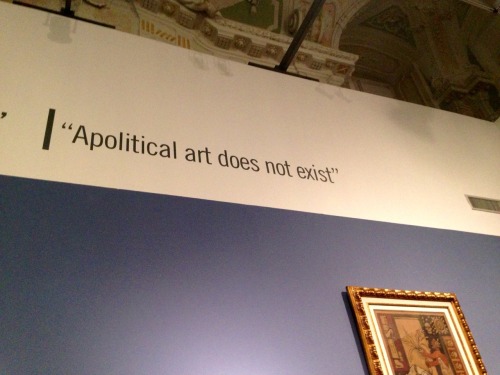Violeta Parra, Árbol De La Vida (Tree Of Life), 1963

Violeta Parra, Árbol de la Vida (Tree of Life), 1963
More Posts from Dia-ar-te and Others




The Sexy Lie, Caroline Heldman at TEDxYouth@SanDiego
Yes!!! Much to us all!! But let's drop the disabled word, much love to all Latinas with different abilities. Much love us all (one more and more!)
Honestly Latinas are so incredibly important. Brown Latinas, Black Latinas, First Generation in the USA Latinas, Latinas who have to translate everything for their parents, fat Latinas, disabled Latinas, Latinas who were only ever told to speak English so they might fit in better, trans Latinas, all Latinas. You’re beautiful.

That simple. An instinctive act of kindness has led to the creation of Las Patronas, a charitable organisation helping tens of thousands of Central American migrants…awarded Mexico’s most prestigious human rights prize.
3 parts of building a habit: a cue, a routine & a reward.
As part of transitions, I am developing new habits both naturally (like sleeping longer ☁) and those at will (like working out more ☜). But how does the human body, brain and soul develop new habits? AND how do we build a positive habit over a negative habit? But first, we should acknowledge that only YOU have a say in what is a positive or a negative thing that you want for yourself at at given time and space. With that being said, here are some good tips I just read about developing new habits, and repetition or self-torture are not the answers.
What are habits and how are they formed anyway? Habits are made by synapses, or gaps between cells that send impulses to the brain. This helps facilitate what a person thinks or does. If this is repeated constantly, it becomes more accessible -- or a habit.
Now to the 6 ways to breaking a bad habit and developing healthy habits:
Link the new behavior to a routine or environmental cue: Repetition is only part of forming a new habit. It is useful to develop a habit loophole, which means performing something at the same time of the day. This becomes a response to specific cue.
Link a difficult task to a reward: Pretty much think “If i do this tough task, then I will reward myself with something that I like” The idea behind the if-then principle is to link the new behavior, which may be uncomfortable at first, with something positive so the new behavior is associated with positive. This enhances confidence in performing new habit and thus increasing positive feedback and desire to do it again.
Repeat new behaviors and keep track of progress: Okay, I did say repetition but 24/7 repetition is not what makes a habit successful. In addition to repetition, keeping track of new habit and response to performance is a helpful technique in developing new habitual behavior. Be mindful that life happens (let it happen) and it is okay to miss a day or two of your routine. It is much more important staying schedule most of the time rather than ALL the time. This helps build a new habit.
Keep it simple: Focus on one habit at a time, otherwise it becomes overwhelming and easy to give up
Use peer support for accountability: Tell a friend, partner or join online support group for motivation or a even a little peer pressure.
Make a detailed plan: As with many other personal or professional goals a plan in mind will provide more direction. This can be very helpful when building a new habit as well.
Forget the 21-day habit myth, there is no exact time for developing a habit but with a cue that reminds you and makes you comfortable to do something, a routine that fits you, and a reward for your hard work, a habit will be formed.

"Apolitical art does not exist" Diego Rivera
Frida Kahlo exhibition in Genova, Italy

Homemade #ceviche de camarón para el alma. #feelinggood #ecuayorkerlife

International Women’s Day 2015
Photo © Jakub Jerzy Markiewicz
-
 dolly-m liked this · 1 year ago
dolly-m liked this · 1 year ago -
 little-mind-box reblogged this · 1 year ago
little-mind-box reblogged this · 1 year ago -
 i-like-flowers-and-bugs liked this · 1 year ago
i-like-flowers-and-bugs liked this · 1 year ago -
 cloudcastles-and-more reblogged this · 2 years ago
cloudcastles-and-more reblogged this · 2 years ago -
 cloudcastles-and-more liked this · 2 years ago
cloudcastles-and-more liked this · 2 years ago -
 spicypotatoenoodles reblogged this · 2 years ago
spicypotatoenoodles reblogged this · 2 years ago -
 6o3o9 reblogged this · 2 years ago
6o3o9 reblogged this · 2 years ago -
 blink-back-the-tears liked this · 2 years ago
blink-back-the-tears liked this · 2 years ago -
 losnenufares liked this · 3 years ago
losnenufares liked this · 3 years ago -
 laviesansmoi reblogged this · 3 years ago
laviesansmoi reblogged this · 3 years ago -
 p-a-t-r-i-p reblogged this · 3 years ago
p-a-t-r-i-p reblogged this · 3 years ago -
 popsicklee liked this · 3 years ago
popsicklee liked this · 3 years ago -
 howthespiderdies reblogged this · 3 years ago
howthespiderdies reblogged this · 3 years ago -
 icelti reblogged this · 3 years ago
icelti reblogged this · 3 years ago -
 corolarios liked this · 3 years ago
corolarios liked this · 3 years ago -
 coochiejesus reblogged this · 3 years ago
coochiejesus reblogged this · 3 years ago -
 rustedskyprisms liked this · 3 years ago
rustedskyprisms liked this · 3 years ago -
 lilnimbus liked this · 3 years ago
lilnimbus liked this · 3 years ago -
 ignoisco reblogged this · 3 years ago
ignoisco reblogged this · 3 years ago -
 ignore-tenderness reblogged this · 3 years ago
ignore-tenderness reblogged this · 3 years ago -
 acceleste liked this · 3 years ago
acceleste liked this · 3 years ago -
 creepycrappydelirium reblogged this · 3 years ago
creepycrappydelirium reblogged this · 3 years ago -
 raunidoesnothing liked this · 3 years ago
raunidoesnothing liked this · 3 years ago -
 miillkteeth liked this · 3 years ago
miillkteeth liked this · 3 years ago -
 ikkiba liked this · 3 years ago
ikkiba liked this · 3 years ago -
 broodycutie liked this · 3 years ago
broodycutie liked this · 3 years ago -
 culturestinks reblogged this · 3 years ago
culturestinks reblogged this · 3 years ago -
 puppy95 liked this · 3 years ago
puppy95 liked this · 3 years ago -
 neptuneacqua reblogged this · 3 years ago
neptuneacqua reblogged this · 3 years ago -
 the-sound-of-rolling-symbols reblogged this · 3 years ago
the-sound-of-rolling-symbols reblogged this · 3 years ago -
 idontkillbugs reblogged this · 3 years ago
idontkillbugs reblogged this · 3 years ago -
 schwarz-gerat liked this · 3 years ago
schwarz-gerat liked this · 3 years ago -
 smallpotatoes-dandelions reblogged this · 3 years ago
smallpotatoes-dandelions reblogged this · 3 years ago -
 sundeities reblogged this · 3 years ago
sundeities reblogged this · 3 years ago -
 tinyspacebirds liked this · 3 years ago
tinyspacebirds liked this · 3 years ago -
 desertdrugs liked this · 3 years ago
desertdrugs liked this · 3 years ago -
 zuzzzz reblogged this · 3 years ago
zuzzzz reblogged this · 3 years ago -
 shinugodda liked this · 3 years ago
shinugodda liked this · 3 years ago -
 tallyuh liked this · 3 years ago
tallyuh liked this · 3 years ago -
 tammenterskanroskalava reblogged this · 3 years ago
tammenterskanroskalava reblogged this · 3 years ago -
 tammenterhoh liked this · 3 years ago
tammenterhoh liked this · 3 years ago
I am an indigenous-mestiza-afrodescendent trans-national Latina sister from the picturesque South American city of Guayaquil and brought up in East Flatbush, Brooklyn. I love and respect my journey in exploring my browness and my womanhood.
247 posts


